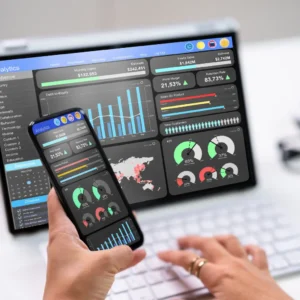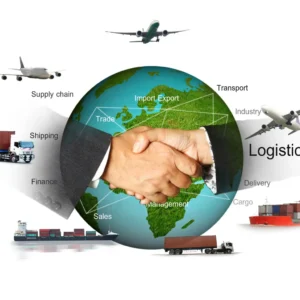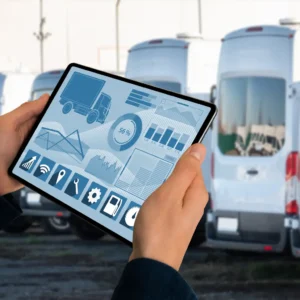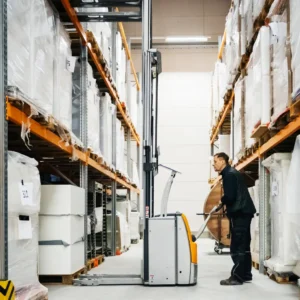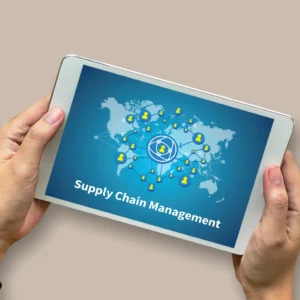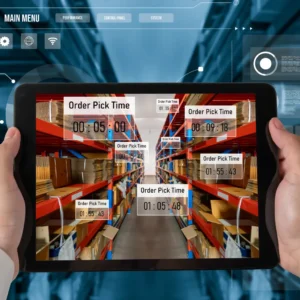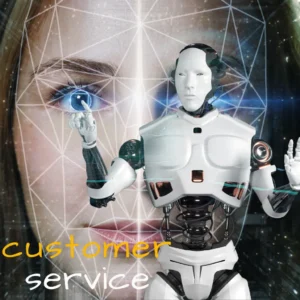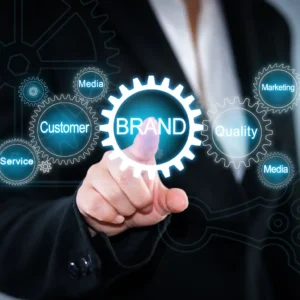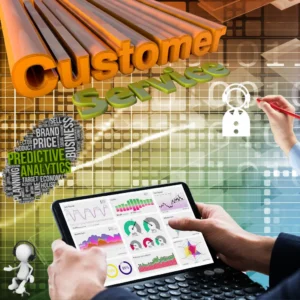
Navigating Success
AI Tools Revolutionizing Marketing and Sales in Travel & Hospitality
In the rapidly evolving Travel and Hospitality industry landscape, integrating AI tools for Marketing and Sales is becoming a strategic imperative for organizations seeking operational excellence and customer-centricity.
This wave of artificial intelligence is designed to help businesses tackle unique challenges, such as predicting sales trends and optimizing advertising campaigns. As an AI pioneer in the travel and hospitality domain, my objective is to explore and conceptualize tools that cater to the diverse needs of organizations, irrespective of their size.
This discussion delves into the indispensable business knowledge, software expertise, hardware requirements, training essentials, integration dynamics, and comparative market tools, all essential components in the quest to harness the power of AI for propelling marketing and sales strategies in the dynamic realm of Travel and Hospitality.
Table of Contents

Arindam Roy
An Automation Consultant with 25+ years of IT Experience
5 AI tool ideas for the Operations & Efficiency in the Travel and Hospitality industry
AI-powered Content Creation:
- AI Domain: Natural Language Processing (NLP), Machine Learning.
- Benefit: AI-driven content creation enables businesses to produce engaging and personalized content at scale. This includes marketing materials, social media posts, and promotional campaigns. AI algorithms can analyze trends, understand language nuances, and adapt content to the preferences of target audiences, leading to more effective communication.
Customer Segmentation and Targeting:
- AI Domain: Machine Learning.
- Benefit: By employing machine learning algorithms, businesses can analyze vast customer data to identify segments with shared characteristics and behaviours. This allows for developing individualized marketing plans and customized offers for distinct consumer groups, resulting in increased ROI as marketing efforts become more precise and applicable.
Social Media Listening:
- AI Domain: Natural Language Processing (NLP).
- Benefit: AI-driven social media listening tools can monitor and analyze real-time online conversations. Businesses can quickly adapt their marketing strategies by understanding customer feedback, tracking trends, and gauging sentiment. This not only helps in addressing customer concerns promptly but also allows for the creation of content and campaigns that resonate with the current social media landscape.
Predictive Sales Analytics:
- AI Domain: Predictive Analytics.
- Benefit: Predictive analytics, powered by AI, can forecast sales trends by analyzing historical sales data, customer behaviour, and market trends. This solution enables businesses to identify potential leads and opportunities, allowing sales teams to focus on high-priority prospects. It also facilitates optimizing sales strategies for better conversion rates, ultimately improving overall sales performance.
Ad Campaign Optimization:
- AI Domain: Machine Learning.
- Benefit: Machine learning algorithms are utilized to analyze data and optimize advertising campaigns in AI-powered ad campaign optimization. This includes targeting the right audience, adjusting bidding strategies based on real-time data, and optimizing ad creatives for better engagement. This improves the efficiency of advertising efforts and helps maximize the return on ad spend (ROAS) by delivering more relevant ads to the target audience.
AI Tools for AI-powered Content Creation
Business Knowledge Requirements:
- Travel and Hospitality Industry Expertise:
- Understanding of industry-specific terminology, trends, and customer preferences.
- Knowledge of seasonal fluctuations, peak travel periods, and regional preferences to tailor content effectively.
- Content Marketing Strategies:
- Familiarity with content marketing principles and strategies to engage target audiences.
- Understanding of storytelling techniques and persuasive messaging in the context of travel and hospitality.
- Customer Segmentation:
- Ability to segment customers based on demographics, travel preferences, and past behaviour for personalized content generation.
- Insight into cultural sensitivities and language nuances to create relevant content for diverse audiences.
- Data Analytics:
- Proficiency in analyzing marketing data to measure content effectiveness, track engagement metrics, and optimize campaigns.
- Knowledge of key performance indicators (KPIs) such as click-through rates, conversion rates, and customer retention metrics.
Software Knowledge Requirements:
- Natural Language Processing (NLP) Tools:
- Proficiency in NLP algorithms for understanding and generating human-like text.
- Experience with sentiment analysis to gauge audience reactions and tailor content accordingly.
- Machine Learning Algorithms:
- Knowledge of machine learning techniques for predictive modelling and personalized content generation.
- Ability to train and fine-tune models using historical data to improve content relevance and engagement.
- Content Management Systems (CMS):
- Understanding of CMS platforms for content creation, organization, and distribution.
- Integration with AI-powered content creation tools to streamline content generation processes.
Hardware Requirements:
- Computational Resources:
- Sufficient computing power to run NLP and machine learning algorithms efficiently.
- Consideration of cloud-based solutions for scalability and flexibility.
- Storage Capacity:
- Adequate storage space for storing large datasets of content variations and historical performance data.
- Efficient data retrieval capabilities for quick access during content generation and analysis.
Training Required:
- Content Creators and Marketers:
- Training on using AI tools for content creation and understanding the insights provided by the system.
- Interpretation of performance metrics to optimize content strategies and improve engagement.
- Technical Staff:
- Familiarization with the AI-powered content creation platform for system maintenance, troubleshooting, and integration tasks.
- Understanding of data privacy and security protocols when handling sensitive customer information.
Integrations Necessary:
- Social Media Platforms:
- Integration with major social media platforms for seamless content distribution and monitoring.
- Real-time tracking of engagement metrics and audience feedback for iterative content improvements.
- Marketing Automation Tools:
- Integration with marketing automation platforms for automated content scheduling and personalized customer communication.
- Data synchronization between AI-powered content creation tools and marketing automation systems for cohesive campaign management.
Comparative Tools in the Market:
- Phrasee:
- Utilizes AI to generate and optimize marketing copy for email campaigns and social media.
- Offers A/B testing functionality to measure the performance of generated content variations.
- Copy.ai:
- Provides AI-powered content generation tools for various marketing purposes, including ad copy, blog posts, and social media captions.
- Offers pre-trained models and customizable templates for rapid content creation.
Recommendation: Buy and Customize
Given the complexity and specialized nature of AI tools for Marketing and Sales in Hospitality, it is recommended to leverage existing solutions from the market and customize them according to specific business needs.
Cost/Benefits Analysis:
- Costs:
- Licensing or subscription fees for the chosen AI-powered content creation platform.
- Customization costs to tailor the tool to the unique requirements of the travel and hospitality industry.
- Training expenses for staff to familiarize themselves with the platform and optimize content creation processes.
- Benefits:
- Rapid deployment of AI-powered content creation capabilities, reducing time-to-market for marketing campaigns.
- Enhanced engagement and conversion rates through personalized and compelling content tailored to the travel and hospitality audience.
- Improved operational efficiency by automating repetitive content generation tasks and freeing up resources for strategic initiatives. Stay ahead of the competition with AI-driven marketing and sales strategies.
AI Tools for Customer Segmentation and Targeting
Business Knowledge Requirements:
- Travel and Hospitality Industry Expertise:
- Understanding the travel and hospitality ecosystem, including different service offerings, customer touchpoints, and industry-specific challenges.
- Knowledge of customer behaviour in travel, including booking patterns, seasonal preferences, and loyalty factors.
- Marketing Strategies:
- Expertise in marketing principles, including segmentation, targeting, and positioning (STP).
- Knowledge of effective promotional tactics in the travel and hospitality sector.
- Customer Relationship Management (CRM):
- Familiarity with CRM principles for maintaining customer databases, tracking interactions, and understanding customer preferences.
- Insight into the data points relevant to customer segmentation and targeting in the industry.
- Regulatory Awareness:
- Understanding data privacy regulations and compliance standards for customer data in the travel and hospitality sector.
- Knowledge of ethical considerations in leveraging customer data for marketing purposes.
Software Knowledge Requirements:
- Machine Learning Algorithms:
- Proficiency in machine learning algorithms for clustering and classification to segment customers based on various criteria.
- Ability to implement algorithms for predicting customer behaviour and preferences.
- Data Analytics Tools:
- The use of data analytics tools helps in extracting valuable insights from historical customer data.
- Implementation of data visualization techniques to communicate segmentation results effectively.
- Customer Relationship Management (CRM) Software:
- Integration with CRM systems to access and update customer data in real time.
- Utilization of CRM functionalities for personalized communication and targeted offers.
Hardware Requirements:
- Computational Power:
- Adequate computing resources for processing large datasets and running machine learning algorithms efficiently.
- Consideration of cloud-based solutions for scalability and accessibility.
- Storage Capacity:
- Sufficient storage capacity for housing extensive customer databases and historical interaction data.
- Efficient data retrieval capabilities for quick analysis during segmentation processes.
Training Required:
- Data Analysts:
- Training on using machine learning algorithms for customer segmentation and targeting.
- Interpretation of results and adjustment of models based on marketing objectives.
- Marketing Teams:
- Familiarization with the tool’s interface for accessing segmented customer lists and utilizing personalized offers.
- Training on interpreting segmentation insights for refining marketing strategies.
Integrations Necessary:
- CRM Integration:
- Seamless integration with existing CRM systems for bi-directional data flow.
- Ensure that customer profiles are consistently updated with the latest interactions and preferences.
- Marketing Automation Platforms:
- Integration with marketing automation tools for the automated deployment of personalized offers to segmented customer groups.
- Coordination between the segmentation tool and marketing automation to ensure consistent messaging.
Comparative Tools in the Market:
- Adobe Audience Manager:
- Offers robust customer segmentation capabilities with advanced audience analytics.
- Integration with Adobe Marketing Cloud for a comprehensive marketing solution.
- Salesforce Marketing Cloud:
- Provides powerful segmentation features combined with marketing automation.
- Integration with Salesforce CRM for unified customer data management.
Recommendation: Buy and Customize
Given the availability of advanced tools in the market, it is highly recommended that hospitality marketers and sales invest in reliable customer segmentation and target AI tools customized to their needs.
Cost/Benefits Analysis:
- Costs:
- Licensing or subscription fees for the chosen customer segmentation tool.
- Customization costs to align the tool with industry-specific requirements.
- Training expenses for staff to become proficient in using the tool effectively.
- Benefits:
- Rapid deployment of a sophisticated customer segmentation solution.
- Leveraging proven algorithms and features from established tools.
- Customization ensures alignment with the unique demands of the travel and hospitality domain.
- Improved marketing ROI through personalized offers and targeted campaigns tailored to specific customer segments.
AI Tools for Social Media Listening
Business Knowledge Requirements:
- Social Media Landscape:
- Understanding of popular social media platforms, user behaviour, and the unique dynamics of the travel and hospitality industry on these platforms.
- Knowledge of trending topics, hashtags, and influential figures within the industry.
- Marketing Strategies:
- Expertise in marketing strategies and the ability to translate social media insights into actionable marketing tactics.
- Understanding how social media impacts customer decisions and perceptions in the travel and hospitality sector.
- Customer Engagement:
- Awareness of effective ways to engage with customers on social media.
- Knowledge of customer expectations and preferences for social media interactions in travel and hospitality.
- Competitor Analysis:
- Insight into competitor activities on social media and the ability to benchmark against industry peers.
- Understanding of industry benchmarks for social media engagement and sentiment analysis.
Software Knowledge Requirements:
- Natural Language Processing (NLP):
- Proficiency in NLP algorithms for analyzing and understanding textual data, including customer reviews, comments, and social media posts.
- Implement sentiment analysis tools to gauge customer sentiment towards the brand and industry.
- Data Analytics Tools:
- Use of data analytics tools to process and visualize social media data effectively.
- Implementing algorithms for trend analysis and identifying patterns in customer feedback.
- Social Media APIs:
- Integration with social media APIs for real-time data retrieval from platforms like Facebook, Twitter, Instagram, etc.
- Utilizing APIs to track mentions, hashtags, and user interactions across different channels.
Hardware Requirements:
- Computational Power:
- Adequate computing resources for processing and analyzing large volumes of social media data.
- Consideration of cloud-based solutions for scalability and flexibility.
- Storage Capacity:
- Sufficient storage for archiving historical social media data and facilitating trend analysis.
- Efficient data retrieval capabilities for quick access during real-time monitoring.
Training Required:
- Social Media Analysts:
- Training on using NLP tools and social media analytics software for sentiment analysis.
- Interpretation of results and insights to inform marketing strategies.
- Marketing Teams:
- Familiarization with the social media listening tool’s interface for accessing real-time data.
- Training on adapting marketing strategies based on social media trends and customer sentiment.
Integrations Necessary:
- Marketing Automation Platforms:
- Integration with marketing automation tools to automate responses and campaigns based on social media insights.
- Coordination between social media listening and marketing automation for cohesive customer engagement.
- Customer Relationship Management (CRM) Software:
- Integration with CRM systems for aligning social media insights with customer profiles.
- Utilization of social media data for enhancing customer relationship strategies.
Comparative Tools in the Market:
- Hootsuite:
- Offers social media listening capabilities along with management and analytics features.
- Provides real-time monitoring and sentiment analysis for multiple social media channels.
- Brandwatch:
- Specializes in social media listening and analytics.
- Offers advanced tools such as image recognition and industry benchmarking.
Recommendation: Buy and Customize
Investing in a reliable social media listening tool customized to suit specific needs is highly recommended to monitor social media activities effectively in the travel and hospitality industry. Established tools that can be tailored to meet the unique requirements of this sector are available. Therefore, exploring these options is recommended. For effective social media monitoring in the travel and hospitality sector, investing in a customized AI tool is advisable. Established tools, adaptable to the industry’s unique needs, offer reliable solutions. Explore these AI tools for enhanced Marketing and Sales strategies.
Cost/Benefits Analysis:
- Costs:
- Licensing or subscription fees for the chosen social media listening tool.
- Customization costs to tailor the tool to industry-specific requirements.
- Training expenses for staff to become proficient in using the tool effectively.
- Benefits:
- Rapid deployment of a sophisticated social media listening solution.
- Leveraging proven algorithms and features from established tools.
- Customization ensures alignment with the unique demands of the travel and hospitality domain.
- Real-time insights for adapting marketing strategies, improving customer engagement, and enhancing overall brand perception.
AI Tools for Predictive Sales Analytics
Business Knowledge Requirements:
- Sales and Revenue Models:
- In-depth understanding of sales processes, revenue streams, and the unique dynamics of the travel and hospitality industry.
- Knowing seasonality, peak booking periods, and factors influencing customer purchasing decisions.
- Market Trends and Competition:
- Awareness of market trends, emerging competitors, and industry benchmarks for sales performance.
- Insight into external factors affecting the travel and hospitality sector, such as economic conditions and global events.
- Customer Behavior Analysis:
- Proficiency in analyzing customer behaviour, preferences, and historical purchase data.
- Understanding of customer segments and the factors influencing their travel choices.
- Data Governance and Compliance:
- Knowledge of data governance principles and compliance standards, especially in handling sensitive customer information.
- Awareness of ethical considerations related to predictive analytics in the sales domain.
Software Knowledge Requirements:
- Predictive Analytics Algorithms:
- Expertise in predictive analytics algorithms for forecasting future sales trends and identifying potential leads.
- Implementation of machine learning models for pattern recognition and customer segmentation.
- Data Analytics Tools:
- Use of data analytics tools for processing and analyzing large datasets of historical sales data.
- Implementation of data visualization techniques to communicate insights effectively.
- Customer Relationship Management (CRM) Software:
- Integration with CRM systems to access and update customer data in real time.
- Utilization of CRM functionalities for comprehensive sales analysis.
Hardware Requirements:
- Computational Power:
- Adequate computing resources for running complex predictive analytics algorithms on large datasets.
- Consideration of cloud-based solutions for scalability and accessibility.
- Storage Capacity:
- Sufficient storage capacity for housing extensive sales data and facilitating trend analysis.
- Efficient data retrieval capabilities for quick access during predictive analytics processes.
Training Required:
- Sales Analysts:
- Training on using predictive analytics tools for sales forecasting and lead identification.
- Interpretation of results and adjustment of models based on sales objectives.
- Sales Teams:
- Familiarization with the tool’s interface for accessing predictive insights and optimizing sales strategies.
- Training on adapting sales approaches based on predicted trends and customer segments.
Integrations Necessary:
- CRM Integration:
- Seamless integration with existing CRM systems for bi-directional data flow.
- Ensure customer profiles are consistently updated with the latest interactions and purchase history.
- Marketing Automation Platforms:
- Integration with marketing automation tools for aligning sales and marketing efforts.
- Coordination between predictive analytics and marketing automation for cohesive customer engagement.
Comparative Tools in the Market:
- Salesforce Einstein Analytics:
- Offers predictive analytics capabilities integrated with CRM for sales forecasting.
- Provides AI-driven insights to enhance sales strategies.
- IBM Watson Analytics:
- Provides predictive analytics solutions for sales and business optimization.
- Offers features for data exploration, pattern recognition, and decision support.
Recommendation: Buy and Customize
It is recommended to purchase a reputable tool for predictive sales analytics and customize it for the specific needs of the travel and hospitality industry due to its complexity and specialized nature. For AI tools in Marketing and Sales in the Travel and Hospitality domain, buying a reliable predictive sales analytics tool and tailoring it to meet the industry’s specific requirements, given its intricate and specialized nature, is advised.
Cost/Benefits Analysis:
- Costs:
- Licensing or subscription fees for the chosen predictive sales analytics tool.
- Customization costs to align the tool with industry-specific requirements.
- Training expenses for staff to become proficient in using the tool effectively.
- Benefits:
- Rapid deployment of a sophisticated predictive sales analytics solution.
- Leveraging proven algorithms and features from established tools.
- Customization ensures alignment with the unique demands of the travel and hospitality domain.
- Improved sales strategies, better lead identification, and enhanced revenue generation through informed decision-making.
AI Tools for Ad Campaign Optimization
Business Knowledge Requirements:
- Advertising and Marketing Strategies:
- In-depth understanding of advertising and marketing principles within the travel and hospitality sector.
- Knowledge of promotional tactics, seasonal trends, and industry-specific advertising challenges.
- Consumer Behavior Analysis:
- Proficiency in analyzing consumer behaviour and preferences in the context of travel.
- Insight into the factors influencing travel-related purchasing decisions.
- Competitor Analysis:
- Awareness of competitor advertising strategies and industry benchmarks.
- Understanding of market positioning and differentiation strategies in the travel and hospitality domain.
- Regulatory Compliance:
- Knowledge of advertising regulations and compliance standards applicable to the travel and hospitality industry.
- Awareness of ethical considerations in utilizing AI for ad campaign optimization.
Software Knowledge Requirements:
- Machine Learning Algorithms:
- Expertise in machine learning algorithms for predictive modelling, recommendation systems, and pattern recognition.
- Implementation of algorithms for analyzing user behaviour and optimizing ad targeting.
- Data Analytics Tools:
- Use data analytics tools to process and analyze large datasets of advertising performance data.
- Implementation of data visualization techniques for interpreting campaign insights.
- AdTech Platforms:
- Integration with advertising technology platforms for real-time campaign monitoring and adjustments.
- Utilization of AdTech functionalities for programmatic advertising and dynamic creative optimization.
Hardware Requirements:
- Computational Power:
- Adequate computing resources for running complex machine learning algorithms and processing ad campaign data.
- Consideration of cloud-based solutions for scalability and flexibility.
- Storage Capacity:
- Sufficient storage capacity for storing large volumes of advertising data and creatives.
- Efficient data retrieval capabilities for quick access during optimization processes.
Training Required:
- Marketing Analysts:
- Training on using machine learning tools for ad campaign optimization.
- Interpretation of results and adjustment of models based on marketing objectives.
- Advertising Teams:
- Familiarization with the tool’s interface for accessing ad campaign insights.
- Training on adapting advertising strategies based on optimization recommendations.
Integrations Necessary:
- Ad Platforms Integration:
- Seamless integration with significant advertising platforms (e.g., Google Ads, Facebook Ads) for data synchronization.
- Real-time communication with ad platforms for bid adjustments and creative optimization.
- Data Analytics Integration:
- Integration with data analytics platforms for comprehensive analysis of ad campaign performance.
- Utilization of analytics insights to refine machine learning models for continuous improvement.
Comparative Tools in the Market:
- Adobe Advertising Cloud:
- Offers programmatic advertising capabilities with AI-driven optimization.
- Provides features for cross-channel advertising and dynamic creative optimization.
- Google Ads Smart Bidding:
- Utilizes machine learning algorithms for automated bid adjustments.
- Integrates with Google’s vast dataset for predicting user behaviour and optimizing ad performance.
Recommendation: Buy and Customize
Given the specialized nature of ad campaign optimization and the availability of established tools, it is recommended to purchase a reputable tool and customize it to meet the specific needs of the travel and hospitality industry. For optimal ad campaign optimization in the Travel and Hospitality industry, it is advised to procure a proven AI tool and tailor it to meet specific marketing and sales requirements.
Cost/Benefits Analysis:
- Costs:
- Licensing or subscription fees for the chosen ad campaign optimization tool.
- Customization costs to align the tool with industry-specific requirements.
- Training expenses for staff to become proficient in using the tool effectively.
- Benefits:
- Rapid deployment of a sophisticated ad campaign optimization solution.
- Leveraging proven algorithms and features from established tools.
- Customization ensures alignment with the unique demands of the travel and hospitality domain.
- Improved advertising efficiency, better targeting, and enhanced return on investment (ROI) through AI-driven optimization.
Conclusion on AI tools for Operations & Efficiency in the Travel and hospitality
In the Travel and Hospitality industry, developing and implementing AI tools for Marketing and Sales has the potential to revolutionize operational efficiency and strategic decision-making. These solutions are designed for the travel and hospitality industry. They range from predictive sales analytics to ad campaign optimization and are suitable for enterprises of all sizes.
The success of these tools relies on a harmonious blend of domain-specific business knowledge and advanced technological expertise. Understanding customer behaviour, market trends, and regulatory nuances within the travel industry is paramount. Simultaneously, proficiency in machine learning algorithms, data analytics, and integration with critical platforms such as CRM and marketing automation are essential for building robust and effective AI solutions.
While a wealth of tools is available in the market, the recommendation leans toward adopting and customizing existing solutions to accelerate deployment and capitalize on proven functionalities. This approach ensures a faster time-to-market, industry-specific tailoring and cost-effectiveness.
As organizations embrace AI tools tailored for the Travel and Hospitality sector, they gain the capability to enhance customer experiences, optimize marketing strategies, and streamline sales operations. Ultimately, these advancements empower businesses to stay competitive, navigate industry challenges, and unlock new dimensions of success in the dynamic landscape of travel and hospitality.
Related Articles
- AI tools for Emerging Technologies in Travel and Hospitality
- AI tools for Data Analytics and Insights in Hospitality
- AI Tools for Customer Experience and Engagement in Hospitality
- AI Tools for Collaboration and Communication in Hospitality
- AI tools for Accessibility and Inclusivity in Hospitality
- AI Tools for Operations and Efficiency in Hospitality
- AI Tools for Regulatory Compliance and Risk Management
- AI Tools for Safety and Security in Hospitality and Travel
- AI Tools for Sustainability and Environmental Impact
- AI tools in the Travel and Hospitality domain


